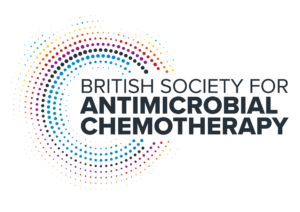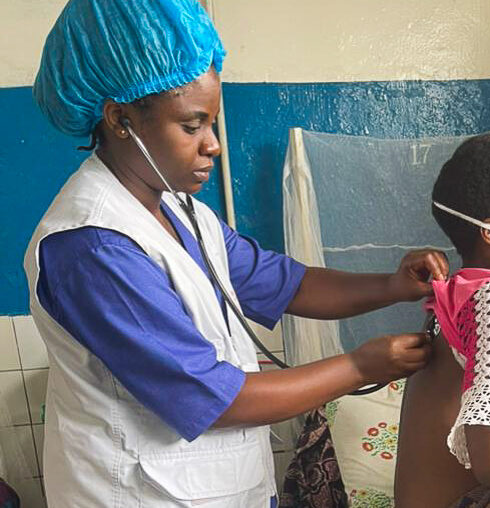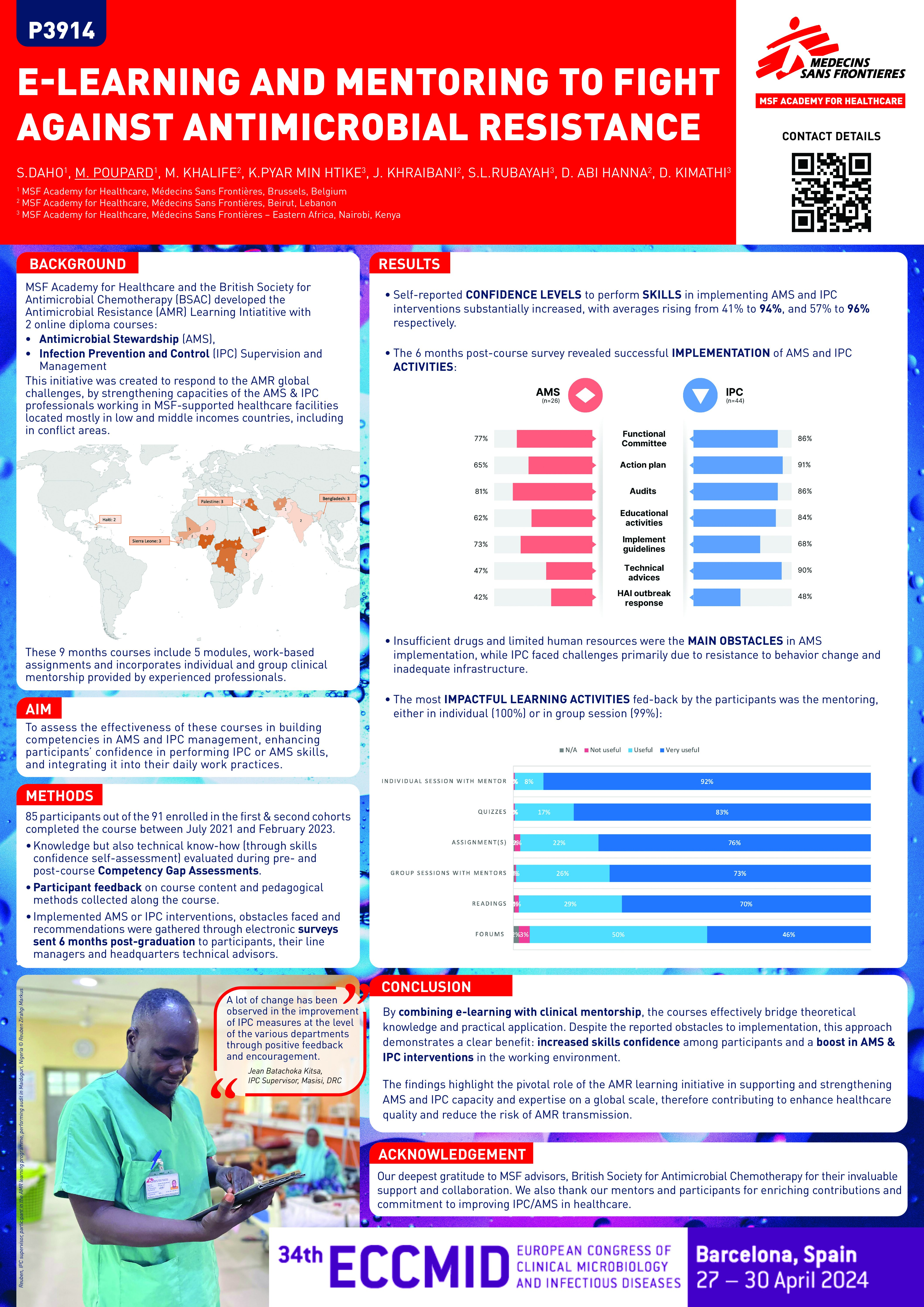Apprentissage de la Résistance aux Antimicrobiens
Améliorer la gestion de la résistance aux antimicrobiens dans les projets de MSF
L’initiative d’Apprentissage de la Résistance aux Antimicrobiens vise à améliorer la gestion de la résistance aux antimicrobiens (RAM) dans les structures soutenues par MSF grâce à la formation et au renforcement des compétences des superviseurs de la prévention et du contrôle des infections (PCI) et des points focaux du bon usage des antimicrobiens (BUA).
La résistance aux antimicrobiens est une priorité centrale pour les départements médicaux et opérationnels de MSF, car la résistance aux antimicrobiens se propage rapidement et affecte la morbidité et la mortalité de nos patients actuels et futurs. L’initiative d’apprentissage sur la RAM a été lancée en 2021 et propose deux cours en anglais et en français : Supervision et control de la PCI et Bon usage des Antimicrobiens.
Grâce à ces programmes de formation de neuf mois, les superviseurs PCI et les points focaux BUA acquièrent les compétences pratiques et les connaissances nécessaires pour mettre en œuvre une stratégie PCI ou BUA au sein de leur hôpital et soutenir le personnel de MSF dans les meilleures pratiques.
L'initiative d'apprentissage de la RAM en chiffres
diplômés
apprenants actifs
actuellement un cours
Les programmes
Pour les deux profils, un cours d’apprentissage en ligne a été développé en partenariat avec la British Society of Antimicrobial Chemotherapy (BSAC). Le contenu a été organisé avec la contribution et la validation des experts en la matière de MSF et, à la fin du cours, un diplôme accrédité par le Royal College of Pathologists est fourni à tous les diplômés.
Les deux programmes sont organisés sous forme d’apprentissage mixte et sont disponibles via la plateforme d’apprentissage Tembo de MSF. Ils comprennent un ensemble d’auto-apprentissage, de webinaires et de séances en ligne. Pour assurer une bonne qualité d’apprentissage, les participants sont soutenus et guidés dans leur apprentissage par une équipe de mentors cliniques experts, qui jouent un rôle central dans la prestation de ces cours, avec des sessions en groupe et individuelles, et des cas cliniques. Le mentorat clinique aide les apprenants à transférer les connaissances acquises en aptitudes et compétences pratiques.
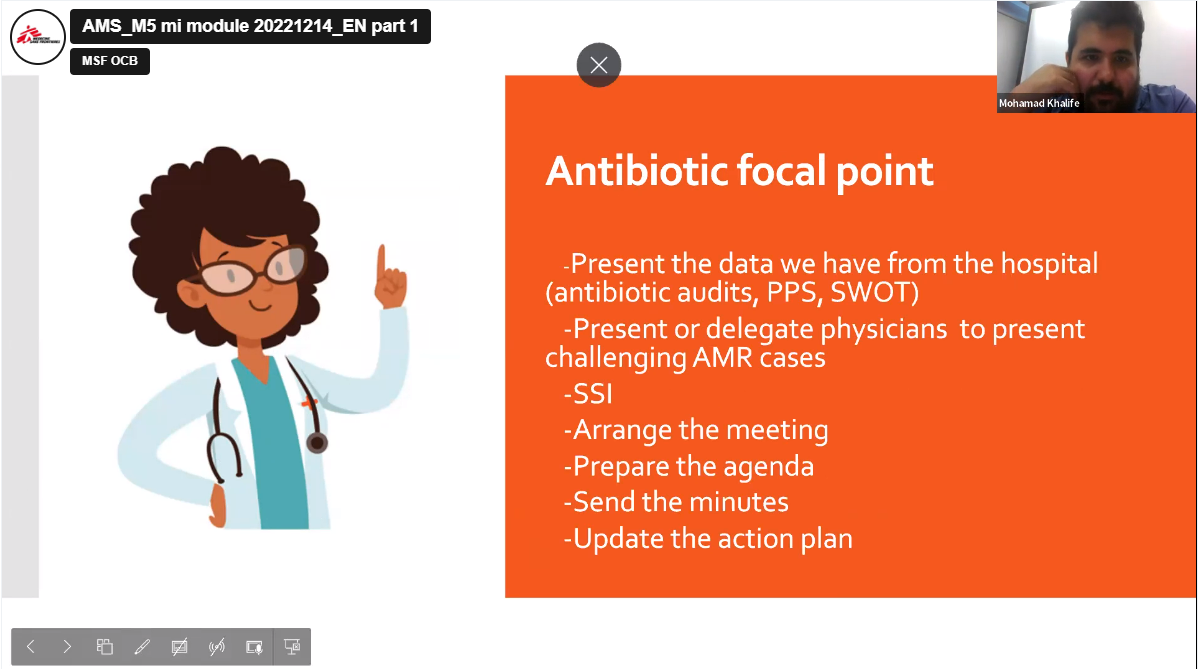
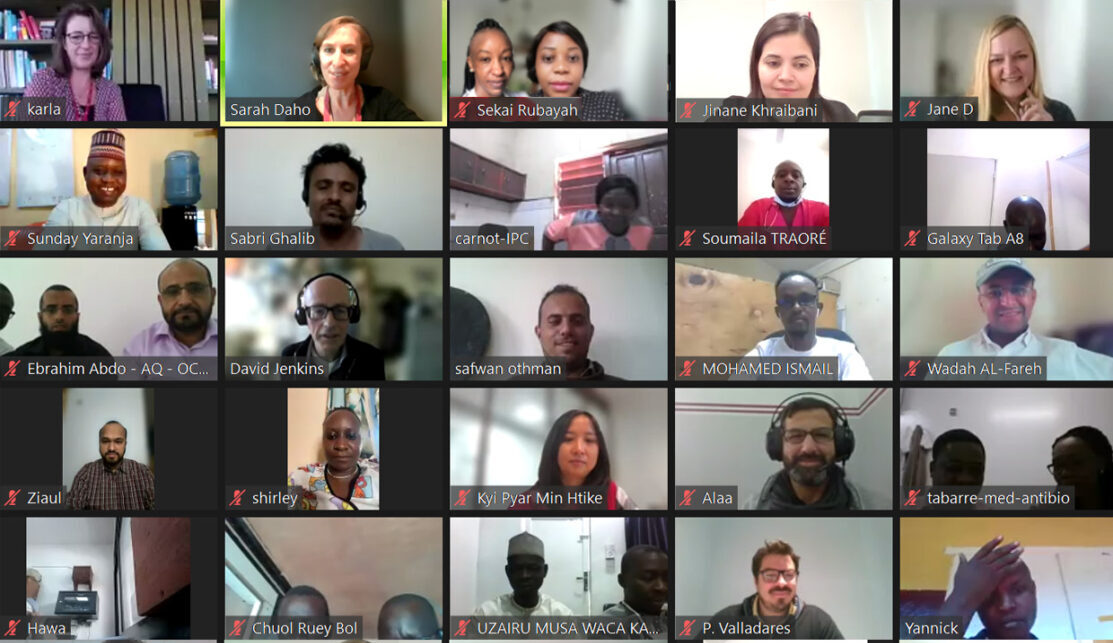
Le contenu
Supervision et gestion de la PCI
Module 1: Évaluation de la situation actuelle de la résistance aux antimicrobiens (RAM) et de la PCI dans l’établissement de santé
Module 2 : Mise en œuvre et suivi de la PCI dans la pratique clinique : Précautions standard et complémentaires
Module 3 : Mise en œuvre et gestion d’un programme de PCI
Module 4 : Optimisation de l’infrastructure hospitalière, de l’utilisation du matériel PCI & des services ancillaires
Module 5: Contribution au suivi, à la prévention et à la gestion d’épidémies d’IAS (infections associées aux soins)
Bon usage des antimicrobiens
Module 1: Evaluation de la situation actuelle de résistance aux antimicrobiens (RAM) et Bon usage des antimicrobiens (BUA) dans l’établissement de soins
Module 2 : Gestion clinique de syndromes infectieux
Module 3 : Utilisation appropriée des antimicrobiens
Module 4 : Mise en œuvre d’un programme de bon usage des antimicrobiens
Module 5: Contribution au suivi et à la gestion d’épidémies d’IAS (infections associées aux soins)
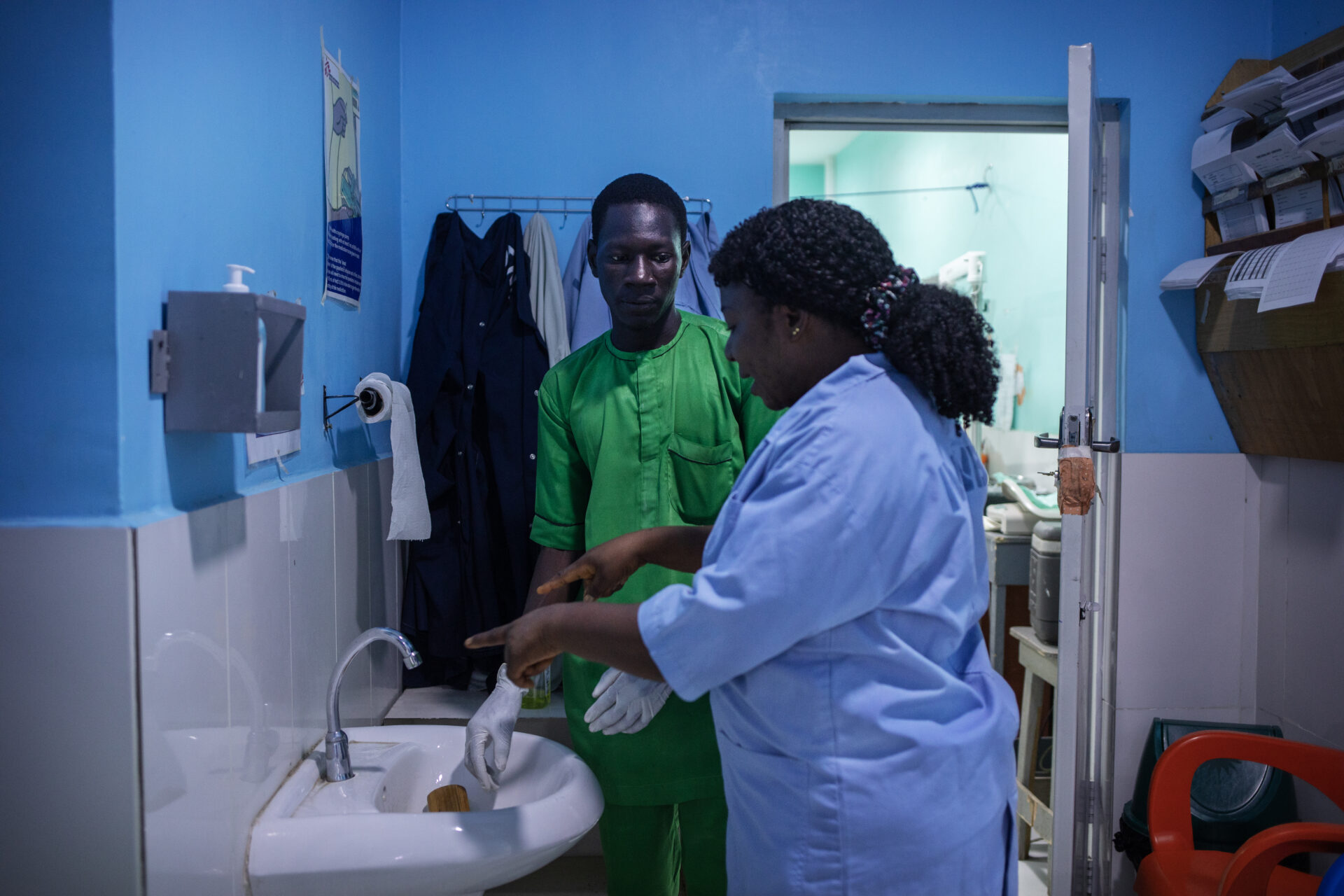 Une superviseuse de la PCI, qui participe au programme RAM, au travail. Jahun, Nigeria, 2023.
© Thomas Cytrynowicz
Une superviseuse de la PCI, qui participe au programme RAM, au travail. Jahun, Nigeria, 2023.
© Thomas Cytrynowicz
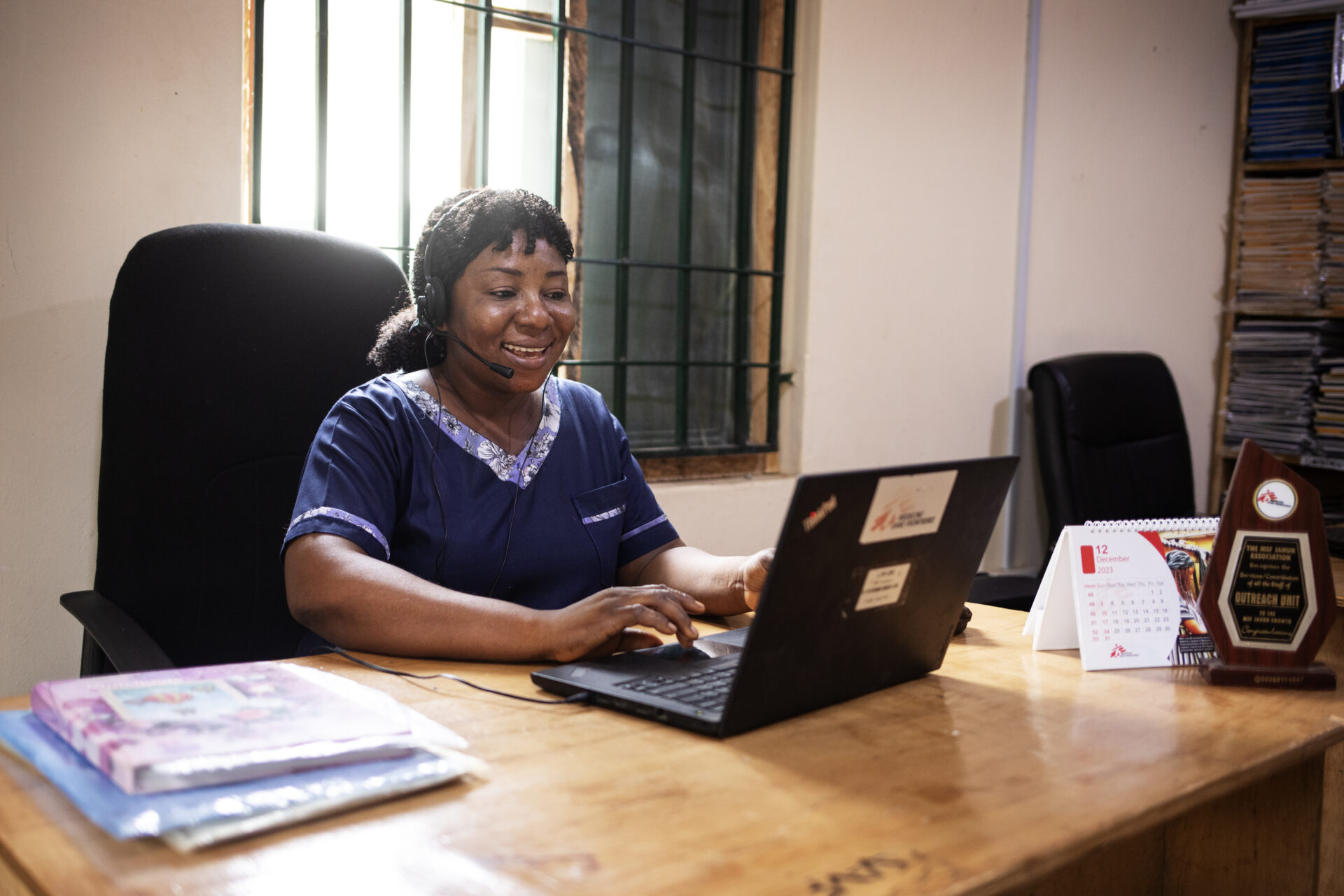 Une superviseuse de la PCI, participant au programme RAM, lors d'une session de formation en ligne. Jahun, Nigeria, 2023.
© Thomas Cytrynowicz
Une superviseuse de la PCI, participant au programme RAM, lors d'une session de formation en ligne. Jahun, Nigeria, 2023.
© Thomas Cytrynowicz
Recrutement des participants
Le nombre de participants dans chaque groupe est déterminé par l’initiative d’apprentissage de la RAM. Dans chaque centre opérationnel de MSF, un représentant de l’apprentissage et du développement est impliqué dans la sélection des participants en coordination avec les conseillers RAM, les référents techniques du PCI et les projets sur le terrain. L’Académie MSF coordonne ensuite la sélection finale avec les centres opérationnels.
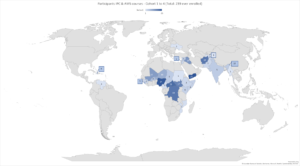
Pour lutter contre la résistance aux antimicrobiens, l’initiative d’apprentissage de la RAM favorise l’échange de connaissances à l’échelle mondiale. Lors du Congrès européen de microbiologie clinique et des maladies infectieuses (ECCMID), l’initiative a présenté un poster intitulé “E-learning and Mentoring to fight against Antimicrobial Resistance” (Apprentissage en ligne et mentorat pour lutter contre la résistance aux antimicrobiens), qui illustre la portée étendue et l’impact positif du programme.

